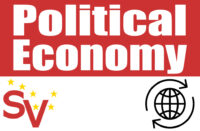Party education is a continuous process. It is like riding a bicycle: we have to keep pedalling to maintain balance; if we don’t, the momentum will only take us a certain distance, after which we will fall.
As the capitalist crisis becomes deeper there will be greater ideological attack on communist parties and Marxism; therefore party education is essential to withstand that attack. That is the reason the recently concluded CPI congress gave importance to intensification of party education. Lack of ideological clarity and party discipline creates weaknesses such as factions, economism, subjectivism, and other kinds of reformist tendencies, which can only be tackled by party education.
Communists never stop learning. Just before his death Bhagath Singh, the greatest Indian revolutionary, who was hanged by the British imperialists, was reading Lenin’s State and Revolution. When the police came to take him to the gallows he said, without taking his eyes off the book: “Give me time. Two revolutionaries are in conversation.” He finished the last few pages and then went to die for his nation. Mao never stopped party education even during the Long March. We have seen pictures of Che Guevara with a book in his hand and a gun over his shoulders, which means books are potent weapons too.
We are living in a predominantly capitalist world. The capitalist mode of production, which is based on exploitation and the extraction of surplus, needs propaganda to justify its exploitation, which it achieves by using education (which creates individuals who subdue themselves to wage slavery), mass media, religion (the opiate that makes people accept the status quo), and bourgeois family structures.
Capitalism bombards us with a constant bourgeois ideological cacophony, with which it domesticates our minds. Noam Chomsky, in Manufacturing Consent, writes that the common character of the world media has become anti-left and anti-trade-union since the 1980s. In today’s world, the ones who control information will control the people’s minds.
This is where party education is essential for winning the battle of ideas; and there cannot be a more potent weapon than Marxism for winning that battle. During the recent cost-of-living crisis caused by inflation, the corporate media said that the workers demanding a wage increase will only make inflation bigger. It needs a Marxist understanding to know that price increases are not the result of wage increases but of capitalist greed to maintain the rate of profit that caused the price increase.
This is where party education has to be continuous and constant, because capitalism is a dynamic system, and to tackle it the ideological battle has to be relentless.
Marxists have a theory that is against exploitation, and it has to be studied and refreshed, otherwise we will drown in the flood of capitalist propaganda.
After the collapse of the Soviet Union many communist parties around the world changed to being “social democrats,” influenced by the capitalist propaganda of the “end of history” and convinced that “there is no alternative” (TINA). Only a few parties, such as the CPI, did not yield to that propaganda and had the conviction to continue as communist parties, believing in the relevance of Marxist-Leninist principles.
In the post-modern world Marxism itself is misused to create confusion within the communist movement. For example, Gramsci, who enriched Marxism using the concept of “cultural hegemony,” is projected as a deviation from Marxism. In fact Gramsci was elaborating the idea of Marx that “ruling ideas are the ideas of the ruling class” and that “an idea becomes a material force once it grips the masses.” So we need the constant retreat to the study of Marxism if we are to guard ourselves against this mischief.
Antonio Gramsci analysed how Germany, which was once the cradle of European philosophy, and Italy, which was the epicentre of the Renaissance, could develop regressive ideologies such as Nazism and fascism. Gramsci chronicled all the literature that influenced the people who created the cultural hegemony among them. He came to the conclusion that the working class should shape its own organic intellectuals through formal education, political training, and class struggles. These intellectuals have the task of organising the working class and creating class-consciousness to overcome “common sense.”
The call by bourgeois intellectuals to drop the idea of class struggle is also a part of the attack. Social change by slow evolution rather than class revolution is being ingrained in the psyche of the working class. That is why we have to refresh ourselves constantly with party education.
Let us learn together. Let us learn from each other.






